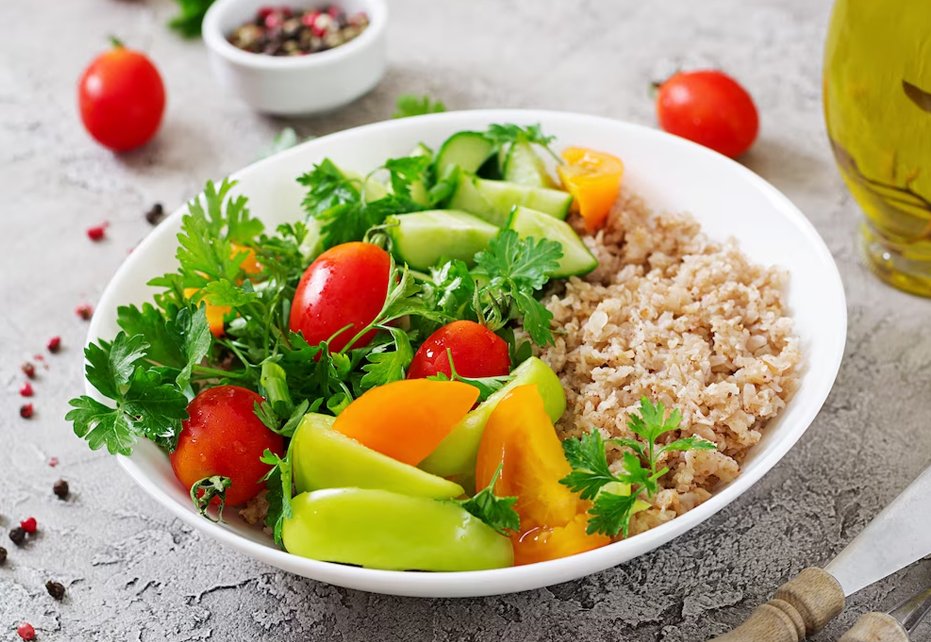
What Is a Vegan Diet? Basics, Ethics, and Foods List
Understanding the Vegan Diet
Learn about the vegan diet, its ethical concerns, health benefits, and environmental sustainability. Discover delicious plant-based foods and get tips for transitioning to a vegan lifestyle. Explore new flavors and nourish your body with wholesome, cruelty-free foods.
28
The Ethics Behind Veganism
Veganism is not just a dietary choice; it is also driven by ethical concerns. Many people choose a vegan lifestyle to promote animal welfare, reduce environmental impact, and improve their health. By avoiding animal products, vegans aim to minimize animal suffering, reduce greenhouse gas emissions, and decrease the demand for factory farming.
Animal agriculture is a leading cause of deforestation, water pollution, and species extinction. By embracing veganism, individuals contribute to a more sustainable and compassionate world.
Benefits of a Vegan Diet
A vegan diet offers numerous health benefits. It is typically rich in fiber, vitamins, minerals, and antioxidants, which support overall well-being. Studies have shown that vegans have a lower risk of obesity, heart disease, type 2 diabetes, and certain types of cancer.
Additionally, a well-planned vegan diet can provide all the necessary nutrients, including protein, iron, calcium, and omega-3 fatty acids. Plant-based sources of these nutrients include tofu, lentils, spinach, almonds, and chia seeds.
Common Foods in a Vegan Diet
While a vegan diet excludes animal products, there is still a wide variety of delicious foods to enjoy. Here are some common staples:
- Fruits: Apples, bananas, oranges, berries, and more.
- Vegetables: Broccoli, kale, spinach, carrots, and others.
- Grains: Rice, quinoa, oats, barley, and whole wheat bread.
- Legumes: Chickpeas, lentils, black beans, and tofu.
- Nuts and Seeds: Almonds, walnuts, chia seeds, flaxseeds, and hemp seeds.
- Plant-Based Milk: Soy milk, almond milk, oat milk, and coconut milk.
- Plant-Based Protein: Tofu, tempeh, seitan, and plant-based protein powders.
- Healthy Fats: Avocados, olive oil, coconut oil, and nut butters.
These are just a few examples, and there are countless delicious vegan recipes and options available. It’s important to ensure a well-balanced diet that meets your nutritional needs.
Getting Started with a Vegan Diet
If you’re considering adopting a vegan diet, here are a few tips to help you get started:
- Gradual Transition: Start by gradually reducing your consumption of animal products and incorporating more plant-based foods into your meals.
- Educate Yourself: Learn about vegan nutrition to ensure you’re getting all the necessary nutrients. Consider consulting a registered dietitian for personalized guidance.
- Explore New Recipes: Experiment with new flavors and try out different vegan recipes. There are numerous cookbooks, websites, and social media accounts dedicated to vegan cooking.
- Connect with the Community: Join online vegan communities or local vegan groups to connect with like-minded individuals and gain support and inspiration.
- Be Mindful: Be mindful of hidden animal ingredients in processed foods and read labels carefully. Many products have vegan alternatives available.
Remember, transitioning to a vegan diet is a personal journey, and it’s important to do what feels right for your body and lifestyle.
Conclusion
A vegan diet is a plant-based eating plan that excludes all animal products. It is driven by ethical concerns, health benefits, and environmental sustainability. By embracing a vegan lifestyle, individuals contribute to a more compassionate world while enjoying a wide variety of delicious plant-based foods.
Whether you’re considering adopting a vegan diet or simply looking to incorporate more plant-based meals into your routine, there are endless possibilities for exploring new flavors and nourishing your body with wholesome, cruelty-free foods.

